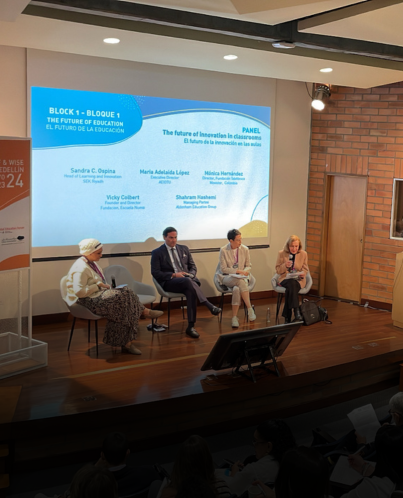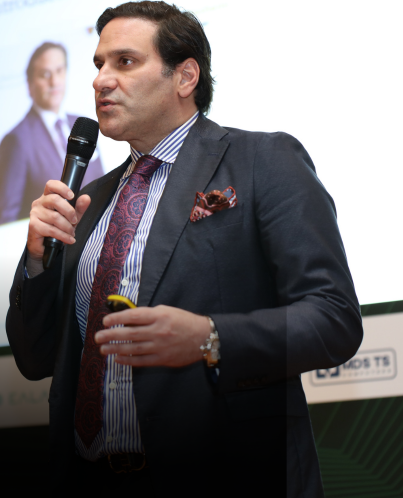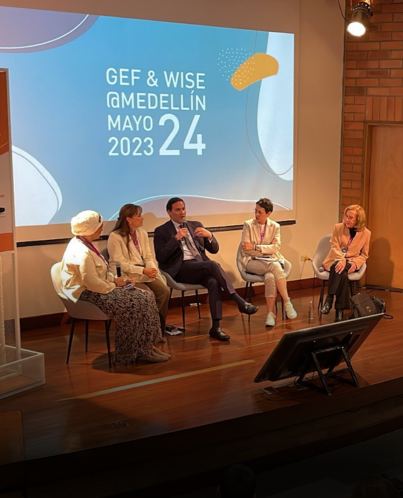The Future Of Teaching
The world of education is always evolving, and the future of teaching is an exciting topic for discussion. Schools are already vastly different to how they were just a few years ago. Educators have to constantly adapt, whether that’s by adding new subjects or topics to the curriculum, or by taking the time to focus more on pupils’ mental health. Technology is helping to transform our daily lives, and it’s doing the same to education, so we’ve taken a closer look at what the future of teaching could look like in just a few years.
Virtual Classrooms
There’s been a rise in the number of pupils learning online over the past few years, and not just because of the recent global pandemic. Even before COVID-19, companies were investing in virtual classrooms and online learning technology – in fact, the market is expected to be worth $350 billion by 2025 (£293 billion). Developers are already working on classrooms in the metaverse, seeing it as the future of teaching. While that might seem like companies latching on to what they hope might be the next big thing, the metaverse could have huge benefits for pupils. In a couple of years, as metaverse technology advances, pupils will be able to visit 3D, immersive universes and explore virtual worlds, or even travel back in time.
They’ll be able to do all this without setting foot outside the classroom – or even without leaving their house. The pandemic showed that pupils don’t always have to be in the classroom to learn. Some schools faced challenges with online learning during lockdown, but that doesn’t mean that this technology causes more problems than it solves. In fact, these issues can be blamed on the fact that these schools lacked the proper technology and infrastructure to teach online effectively. Others were forced to make the leap to this teaching method without warning or preparation, causing disruption to both teachers and students. There are countless benefits to virtual classrooms, though. For a start, they’re more accessible and flexible – pupils can learn from anywhere. This would be particularly useful for pupils who live in remote or rural areas, and would give them access to the same education as other children living in big cities.
The Gamification Of Learning
Another technological innovation that could revolutionise the future of teaching is game-based learning. Essentially, game-based learning is an education method that uses the principles of games to engage with pupils and improve their learning. Studies have shown that the use of video games can help pupils with attention disorders, and they can also enhance pupils’ development, with benefits including enhancing their memory as well as their hand-eye coordination. A recent survey of teachers, by The Joan Ganz Cooney Center, showed that 55% of teachers already used video games in the classroom at least once a week – and 47% of these teachers say the pupils who benefit the most are the low-performing pupils.
Pupils who learn in this way are more engaged with their learning, and more likely to keep on learning outside of the classroom – and even after they’ve left school. Depending on the games, pupils can pick up skills that could be valuable later in life, from how to read maps or use logic to solve problems to how to use a computer and even the basics of coding or programming. As technology advances, and more classrooms begin to use computers or tablets in the classroom, more pupils will be able to see these benefits.
The Future Of AEG
Both virtual classrooms and game-based learning have the potential to help pupils immensely. More importantly, though, they can both teach children to not see learning as a chore. By getting their pupils more engaged in their education – whether that’s through virtual reality school trips or playing games – teachers set them up for later life, and that’s something that we at AEG aspire to do. We’ve always seen learning as a lifetime endeavour, and something that doesn’t just stop as soon as pupils graduate from school – we aim to support our children as much as we can and steer them on the right path, whatever their talents might be.
Aldenham was founded in 1597, and even though AEG has centuries of timeless tradition and experience, we’ve always looked to the future of teaching whenever and wherever we can. At Aldenham School in the UK, for example, our purpose-built theatre was built to the highest standards, with state-of-the-art sound and lighting equipment that our pupils can learn how to use. By putting on high-quality plays and performances while they’re at school, our pupils learn valuable creative skills and boost their confidence at the same time, while also picking up technical skills that they can take with them into their future careers. Our newest school, Aldenham Prep Riyadh, opened last year with cutting-edge facilities throughout the building – in the Learning Resource Centre, pupils can make use of a 3D printer, and get creative with a VR system and video production software. We pride ourselves on embracing modern technology and investing in the latest EdTech, or educational technology, to provide our pupils with the best opportunities.
While we don’t know for certain what the schools of the future will look like, one thing we can be sure of is that they’ll make the most of the latest technologies. New innovations like the metaverse and online learning tech have the potential to revolutionise the way subjects are taught in schools. At our Aldenham schools, our facilities are constantly upgraded in order to ensure we’re offering our pupils the best start in life. To find out more about our ethos, and how we’re always looking forward to the future, head to the Aldenham UK website.


